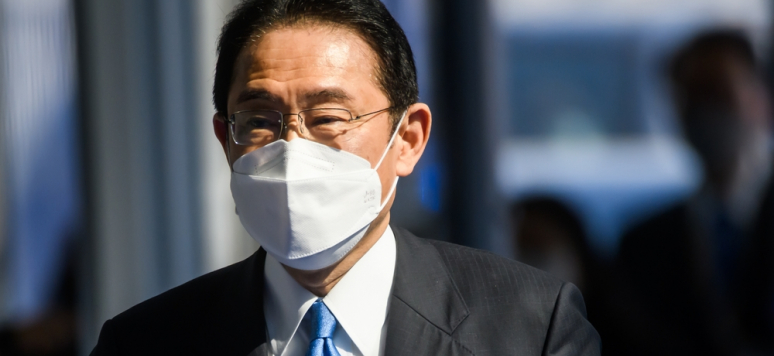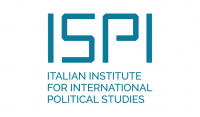
Japan’s Africa policy: Back to basics in times of crisis Istituto per gli Studi di Politica Internazionale (ISPI), 16 septembre 2022
Addressing remotely the 8th Japan-Africa TICAD Summit held in Tunis between August 27th and 28th, Japanese Prime Minister Fumio Kishida pledged $30 billion in public and private contributions to the African continent over the course of the next three years. This is a quite a remarkable move, as no specific amount was mentioned by the late Prime Minister, Shinzō Abe, at the previous TICAD 7 in 2019. By doing so, Japan aims at demonstrating that its commitment to Africa is solid and sustainable: its traditional approach towards a human-centered development is more relevant than ever in these times of crisis (between the pandemic, the war in Ukraine, and the adverse effects of climate change), and clearly marks a difference from China’s practices.

Japan goes back to basics
In this time of compounding crises, Japan goes back to basics in its partnership with Africa. For Tokyo, the Covid-19 pandemic, the food crisis prompted by the consequences of the war in Ukraine, and severe climate conditions feed into a pertinent context for Japan to highlight a core concept of its development assistance policy: human security. This gives the country the opportunity to leverage its traditional assets – such as human-centered development – and long-time commitment to health governance and food security. Incidentally, these two sectors also provide new opportunities for investments, according to Japanese companies.
The war in Ukraine and UN’s ineffectiveness in addressing it have also revived one of Japan’s long-term projects: to reform the UN Security Council, with the ambition of becoming one of its permanent members, as well as to push for a permanent seat for Africa. This is a way for Tokyo to encourage African countries to support its proposal, but also more broadly, to commit to a rules-based order. Crucially, last March, only 28 out of the 54 African countries voted in favor of the UN’s resolution demanding Moscow’s immediate end of its illegal use of force in Ukraine. Critically, Japan worries that the vote could foreshadow Africa’s tacit support for a Chinese takeover of the Senkaku Islands or even Taiwan.
Catching up on investments
Japan is continuing its efforts to shift from development assistance to private investments. The late Prime Minister, Shinzō Abe, pledged a total of $60 billion in financial support (over one third of which was expected to be covered by private investments) at both the 2013 and 2016 TICAD summits. However, by 2019, Tokyo’s investment objectives had not been met, as Japanese Foreign Direct Investments (FDI stock) to Africa amounted to $12 billion – half as much as in 2013. Japanese companies are indeed still very reluctant to invest in a continent perceived distant and risky. The pandemic, in turn, only made things worse: according to the Ministry of Finance, Japan’s annual FDI flows to Africa dropped from $590 million in 2019 to $310 million in 2021.
To keep Kishida’s new commitment, Tokyo is betting on a post-Covid rebound effect for investments and capitalizing on already positive news such as Mitsubishi Motors resuming vehicles production in Kenya. The implementation of the African Continental Free Trade Area (AfCFTA) is also expected to have a positive impact on investment and trade. Furthermore, Japan continues to provide opportunities for the African and Japanese private sectors to meet and network through the Japan-Africa Public-Private Economic Forum as well as TICAD business-oriented side events, including with European partners.
The government recently adopted tools such as financing and insurance frameworks to support investments in Africa’s energy transition. Electric power sources and renewable energy are indeed two of the most promising sectors for expansion according to Japanese companies in Africa. Finally, Tokyo is encouraging SMEs to invest in innovating sectors, including in promising African start-ups. Between 2020 and 2021, JICA conducted "NINJA Business Plan Competition in response to COVID 19" in 19 African countries to support start-ups that create innovative business models and technologies and to incite Japanese companies’ interest: 10 start-ups were selected out of 2,713 applicants. As Japanese companies remain generally cautious when it comes to Africa, Japan also contributes to supporting and expanding the African private sector’s competence. For instance, it will reportedly train 300,000 professionals over the next three years. Through massive investments in human resources such as this, Tokyo also seeks to distance itself from Chinese investment practices.
Differentiating from – instead of competing with – China
Japan seeks to differentiate its approach to development lending from China’s by insisting on the quality – rather than the quantity – of its aid. Contrary to Beijing, Tokyo applies international standards on infrastructure financing, it supports good governance and democratic principles, and it focuses on investing in African human resources by providing training instead of exporting its workers like China does.
Prime Minister Kishida’s references to Japan’s support to African countries as addressing “unfair and opaque development finance” is a clear reference to China’s disruptive lending practices. Even if China signaled some brake in its lending effort to Africa due to an adverse geopolitical and economic context (Beijing has reduced its investment pledges from $60 billion at the 2018 FOCAC to $40 billion at the latest FOCAC Summit in 2021), Japan is concerned that the effects of the pandemic could weaken African economies and worsen their dependence on Chinese aid and investment.
According to Tokyo, China’s economic expansion is progressing at the expense of human rights and good governance, enabling Beijing to leverage support at the international level on key issues like territorial disputes in the South China Sea. In addition, Japan fears that some African countries could become interested in enhancing security cooperation with China, after Russia — their traditional military partner — has been hit by sanctions.
As such, Japan wishes to support Africa’s recovery by preventing sovereign and private debt defaults and building up African nations’ fiscal autonomy. Rather than competing with China, Japan is trying to provide an alternative to what Beijing has to offer. This is of interest for African countries, although they do not wish to pick a side and remain cautious about endorsing Japan’s Free and Open Indo-Pacific vision, only “taking good note” of the initiative, as mentioned by the TICAD 8 Tunis Declaration.
In the future, Japan should continue to promote its balanced development assistance model based on quality — rather than quantity —, train personnel to take advantage of commercial opportunities, and expand its cooperation with third partners such as the EU, India, Australia, and the United States.
> Read the article on ISPI's website.


